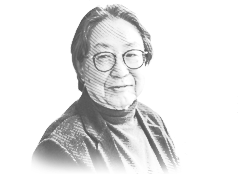Vida Maralani studies social inequality and how it comes about. How do families come to have certain bundles of resources? How is inequality passed down from parents to children? How does it change over time?
Maralani’s research is distinctive for bringing demography to bear on the study of social stratification in order to capture the multidimensionality and dynamics of inequality. She uses sophisticated quantitative methods such as formal demographic models, simulations, and semi-parametric methods. Maralani approaches inequality as a process in motion rather than a static snapshot, showing how different resources are inter-related both across the life course and generations. Because education is such an important part of one’s socioeconomic position, she has studied this topic extensively. But, education doesn’t determine people’s life chances in isolation from other social processes. Maralani’s research demonstrates how education is intertwined with other social statuses, including family processes such as marriage and fertility, and how educational inequality changes across the life course, generations, and birth cohorts. For more information about Maralani’s research and publications, teaching, and policy work, see her personal website.

